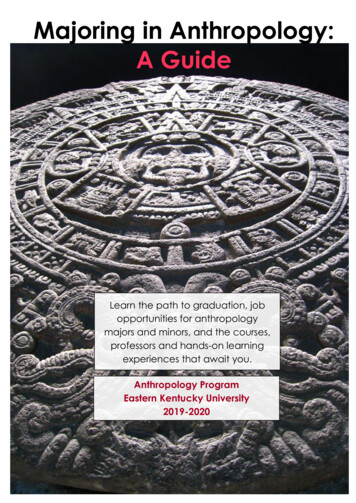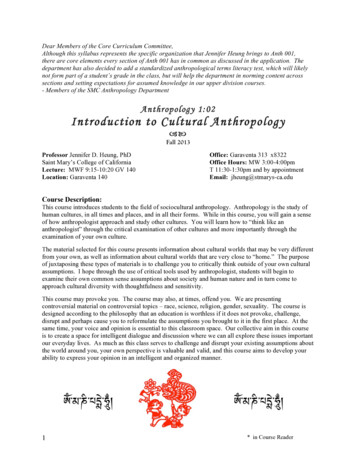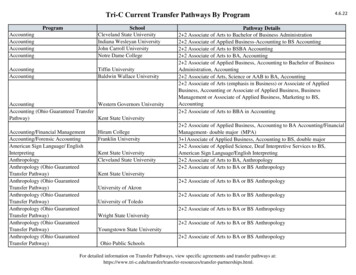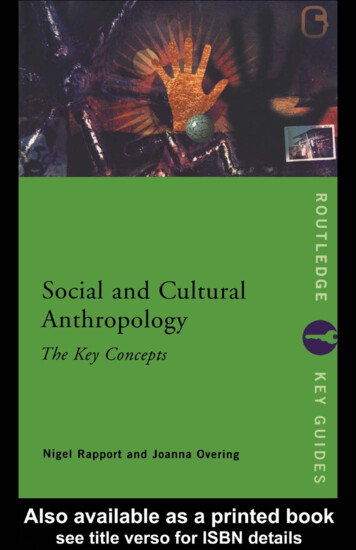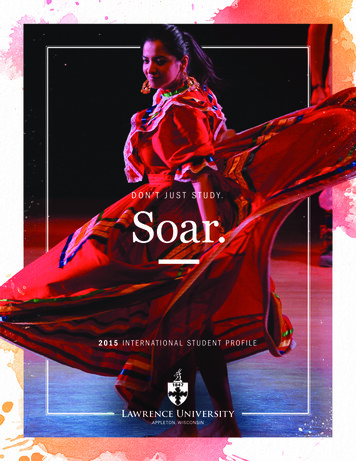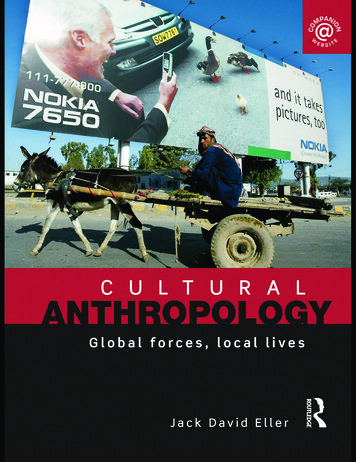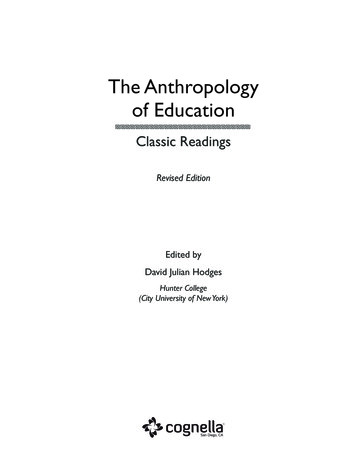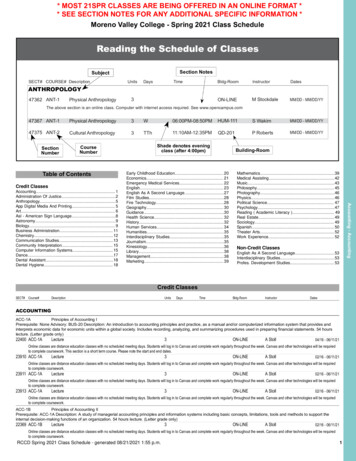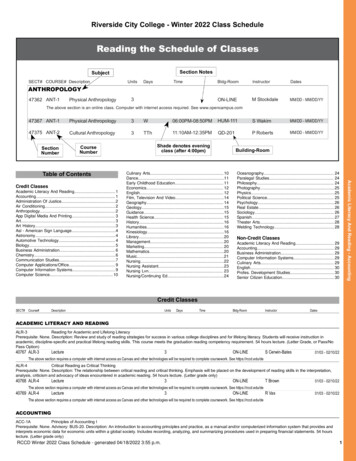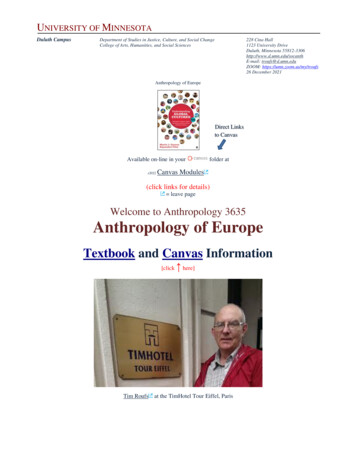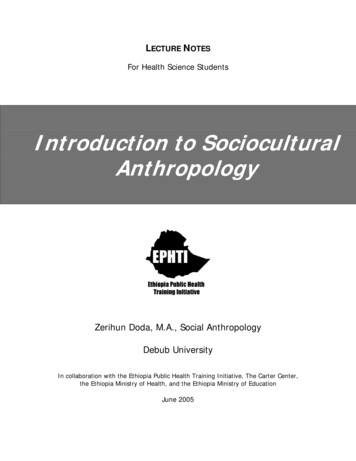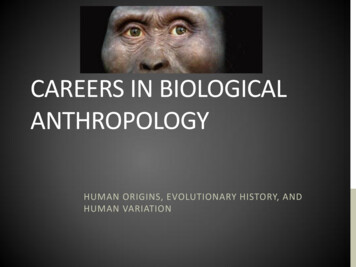
Transcription
CAREERS IN BIOLOGICALANTHROPOLOGYHUMAN ORIGINS, EVOLUTIONARY HISTORY, ANDHUMAN VARIATION
Study of human beings and human behavior that considers biology andculture.Biological anthropology includes: primatology paleoanthropology growth and development genetics osteology human reproduction forensic science nutritionTraditional opportunities are in teaching.Emergence of nontraditional opportunities are primarily in biomedicalresearch.
Teaching at a community college (teaching focus)Teaching in a university (research focus) Paleoanthropology PrimatologyResearch Medical, nursing, and public health schools Medical genetics research Government research: biomedicine and public health Private industry: research for profitMuseums (collections, education, and research)Public health and international nutritionKinesiology and human biologyIndependent consultingJournalism: bringing science to the publicForensic scienceSource: A Guide to Careers in Physical AnthropologyAlan S. Ryan
BIOLOGICAL ANTHROPOLOGYGENETICSForensics Analyzing crime sceneDNAPopulation genetics Analysis of ancient DNA Analysis using mtDNA or Y-chromosomal DNA to study human migrationpatterns Useful for identifying when peopling of certain areas of the worldoccurred, such as providing a picture of how the Americas werepeopled.
THE BRAIN, MIND, ANDCULTUREApproaching anthropological fieldwork from a neuroscienceperspective“Laboratory research that is ecologically and ethnographically valid field research that draws on cognitive science and humandevelopment.”Mixed methods of ethnography, psychology, and neuroimaging
CURRENT “NEUROANTHROPOLOGY”The Encultured Brain Greg Downey and Daniel H. LendeInstitute of Cognitive and Evolutionary Anthropology Emma Cohen Robin DunbarSemel Institute for Neuroscience and Human Behavior Center for Culture and Health Center for Neurobehavioral Genetics Cultural Neuropsychology Initiative
FORENSIC ANTHROPOLOGYThe analysis and application of identifying human remains that arelargely skeletal, badly decomposing or otherwise unidentified in the legaland often humanitarian contexts using the science of biologicalanthropology.Masters Degree or Doctorate Degree Usually in Physical or Biological AnthropologyAcademic and research institutionsMedical Examiner’s OfficeNon-government organizations Mass gravesUsually not employed on a full-time basisCompetitive field to enter
PALEOANTHROPOLOGY Why become a paleoanthropologist?Positions: Academic to MuseumsRequirementsFrom undergraduate to collegeprofessor, a case study in thedifficulties of succeeding in academia. Undergraduate Graduate School Applications Graduate School Job Search First Job Professorship The Field: marketing yourself andyour project (internationalrequirements (“quirk ofbiogeography”), specialty -pessimistically/Source: A Guide to Careers in Physical AnthropologyAlan S. Ryanhttp://visual.ly/timeline-hominid-evolution
EPIDEMIOLOGISTSInvestigate the causes of disease and other public health problems toprevent them from spreading or from happening again.Most positions as an epidemiologist require at least a master’s degree froman accredited institution in the area of public health. Coursework inepidemiology includes public health, biology, and biostatistics.Many states report shortagesof qualified workers for appliedepidemiology positions.
‘‘Employment opportunities in biomedicine or public health at afederal institution are an untapped resource for physicalanthropologists’’ (Ryan,2002).Job growth is expected at 24%. Overall, Epidemiologists should havegood job prospects. In 2010 the median pay was 63,010. (BLS.gov)They work in health departments,offices, universities, laboratories,or in the field. They spend mostof their time studying data andreports in a safe lab or officesetting.
FORENSIC ANTHROPOLOGY The analysis and application of identifying human remains that are largely skeletal, badly decomposing or otherwise unidentified in the legal and often humanitarian contexts using the science of biological anthropology. Masters Degree or Doctorate Degree Usually in Physical or Biological Anthropology
